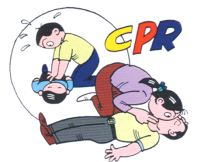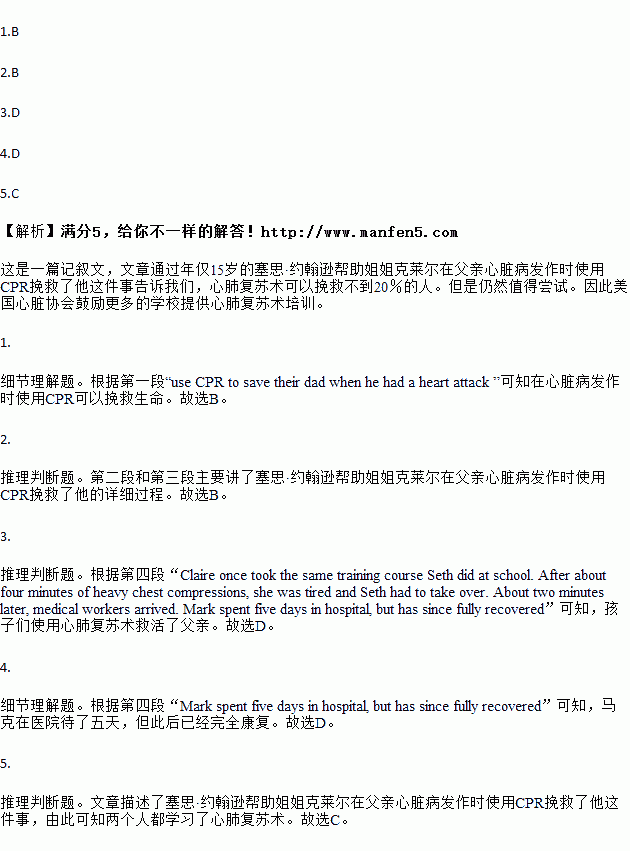题目内容

When students at Olathe East High School in the US got their CPR (心肺复苏术) training this winter, 15-year-old Seth Johnson paid close attention. Two weeks after his training, Seth helped his elder sister Claire use CPR to save their dad when he had a heart attack (心脏病发作).
That day, their father Mark was in their home when he suddenly felt quite sick. Then, things got worse. Hearing their dad shouting, Claire ran in and helped Seth pull their dad off the couch and lay him flat (平的). Claire called 911 and then started CPR.
Claire put her hands on the center of her dad’s chest (胸部) and began to push hard and fast about twice per second. She pushed on his chest 30 times, then gave two rescue breaths (人工呼吸).
Claire once took the same training course Seth did at school. After about four minutes of heavy chest compressions (胸部按压), she was tired and Seth had to take over. About two minutes later, medical workers arrived. Mark spent five days in hospital, but has since fully recovered.
Recent studies have shown that CPR saves less than 20 percent of people in these kinds of situations. But experts say it’s still worth trying. And the earlier it’s given, the more successful it’s likely to be. The American Heart Association has encouraged more schools to offer CPR training. As of last year, 38 states had laws asking students to learn it.
1.CPR can be used to save a person when he/she ________.
A.has a bad headache B.has a heart attack
C.has been burned D.has trouble sleeping
2.Paragraphs 2-3 were mainly written to ________.
A.explain how to do CPR B.describe how Claire saved her father
C.show how smart Claire was D.describe the CPR training course
3.What can we learn from Paragraph 4?
A.Claire did CPR on her own to save her father. B.Claire was never trained on how to do CPR.
C.Mark got worse after getting CPR. D.The CPR saved Mark.
4.How long did Mark stay in hospital?
A.Four minutes. B.Two minutes. C.Six minutes. D.Five days.
5.What can we infer from the story?
A.CPR can only be used in the early stage of a heart attack.
B.More than 80 percent of patients benefit from CPR.
C.Both Claire and Seth learned CPR at school.
D.All US schools require students to learn CPR.
 天天向上一本好卷系列答案
天天向上一本好卷系列答案 小学生10分钟应用题系列答案
小学生10分钟应用题系列答案
